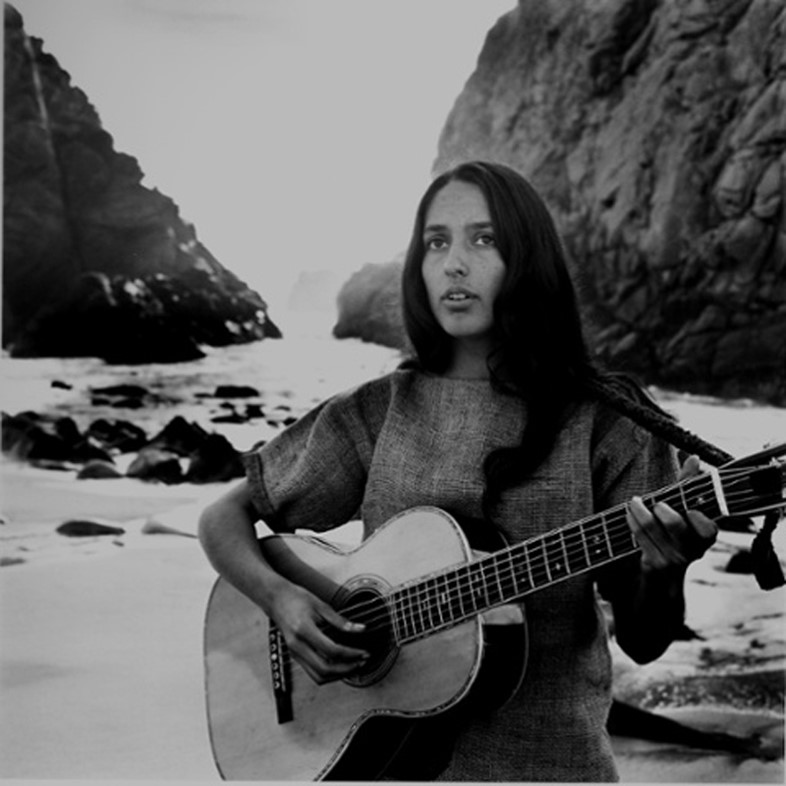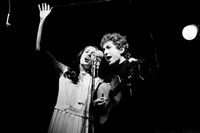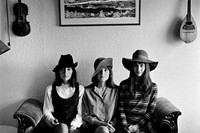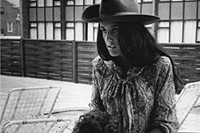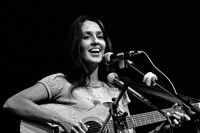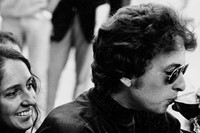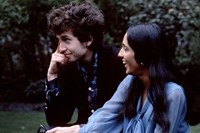In anticipation of her Royal Festival Hall performance, we remember the exotic beauty and inspirational strength of Joan Baez
She helped launch Woodstock, was a forerunner for peace activism and Bob Dylan famously refused to marry her on the grounds that he could not control her. Joan Baez, with her dark features, lingering soprano voice and tremendous will was the reigning queen of folk music during the 1960s, bringing strength and depth to the decade’s explosive music scene. She is set to perform next week at The Royal Festival Hall, and will undoubtedly reignite the free-spirited bohemia that helped to define a generation.
Baez was there at the launch of the hippie '70s and was one of its pioneering style icons, marrying flared cords, swirl prints, parachute skirts and kinked hair with an abundance of orange, brown and frayed denim. Looking at a photo of Baez, you can almost smell the joss sticks. Throughout her career she would repeatedly “purify” herself by throwing out all of her clothes and jewellery, excluding a few precious things including an Alexandrite ring and some crosses. She made her own mascara from charcoal toothpaste and handmade jewellery, such as the iconic spoon necklace that she wore to Liveaid. She wore dresses made by her older sister, along with Spanish scarves passed on from her mother.
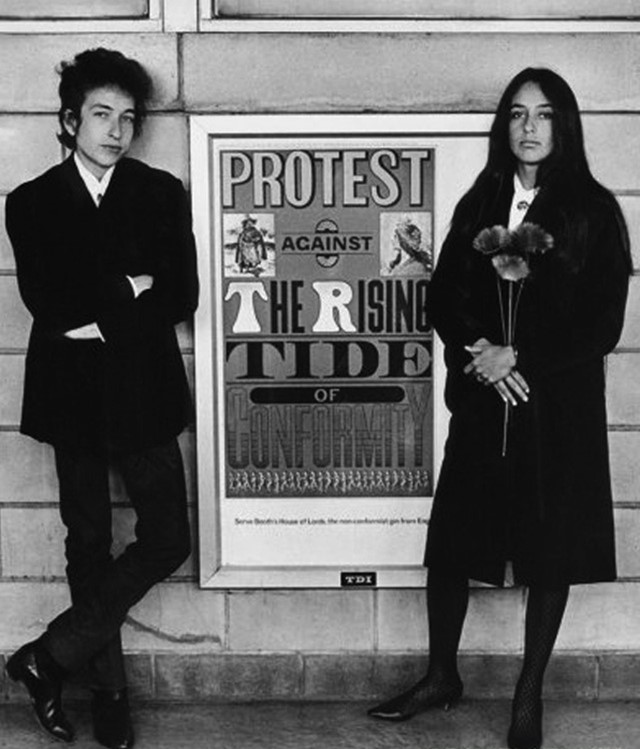
Baez was brought up in California in the Quaker tradition, values which she has maintained throughout her life, particularly in regards to pacifism. Her family travelled the world due to her father’s role in healthcare, living in Spain, Canada and the Middle East, meaning the young Joan was exposed to social issues from an early age. A fervent peace activist, she used her music as a way to express her political views, such as We Shall Overcome, which she sang at a 1963 March organised by Dr Martin Luther King. “I went to jail for eleven days for disturbing the peace,” she recalls in her in her autobiography A Voice to Sing With. “I was trying to disturb the war.” She married David Harris in 1967, a Vietnam draft protestor, who spent most of their marriage in prison. As well as Harris, Baez has been romantically linked to Steve Jobs and most famously, Bob Dylan – whose music she introduced to the masses – as well as openly dabbling in lesbianism in her early 20s.
“I went to jail for eleven days for disturbing the peace. I was trying to disturb the war" — Joan Baez
On one hand, Baez is a towering totem of strength and defiance; on the other, she is a soulful, quiet beauty whose haunting lyrics acted as a backdrop to the social and political change that exploded during the 1960's youthquake. Her words and music inspired a generation, and they hold firm today, in lyrics such as:
“You don't get to choose
how you're going to die.
Or when.
You can only decide
how you're going to live.
Now."
An Evening with Joan Baez is at the Royal Festival Hall from 17-21 September.
Text by Mhairi Graham
